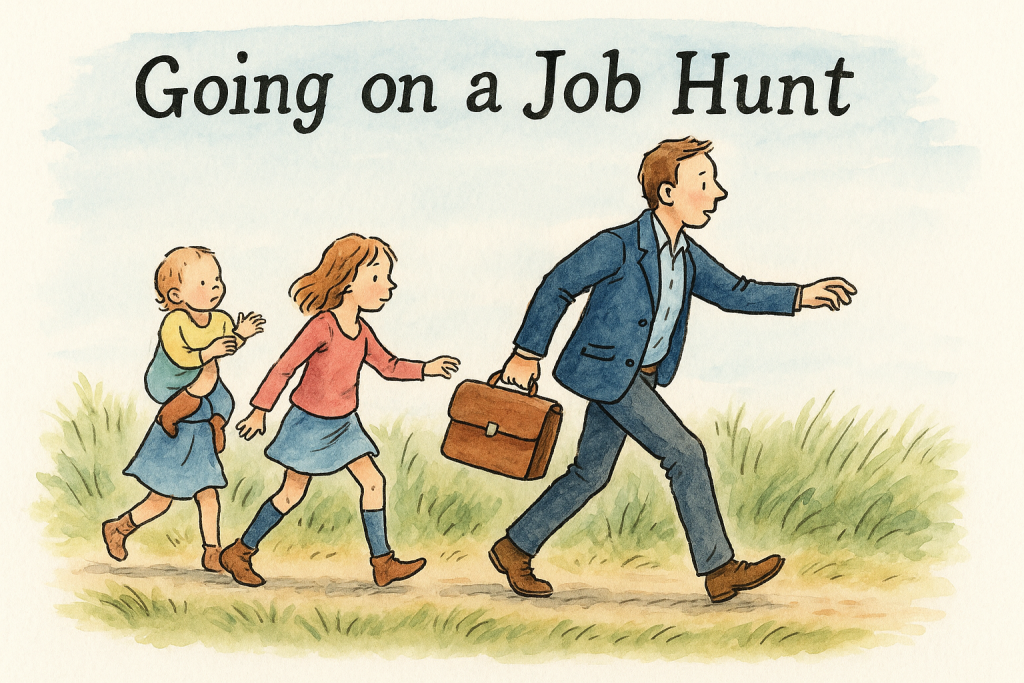What the games industry needs now isn’t people with all the answers—it’s people willing to lead quietly through uncertainty and change.
The games industry is in a period of flux. Studios are consolidating. Projects are being paused. Talented people across disciplines—artists, programmers, producers, QA, and more—are finding themselves in transition.
In times like these, it’s easy to feel pressure to fix yourself. Your feed fills with advice: take a course, build a side project, sharpen your brand. There’s always something more to do. Something that might make the difference.
And while that advice often comes from a good place, it can carry an unspoken message: “You’re not where you want to be because you’re not enough yet.”
After two decades in the industry, I’ve seen that pressure before. And I’ve learned that what looks like unreadiness is often something else entirely.
Readiness Is Rarely a Feeling
That’s stayed with me—because I think it mirrors the way we grow professionally, too. Most of the time, we don’t feel ready before we step into something new. We grow into it by doing the work.
I’ve never felt less prepared for anything than I did the day I became a parent. No manual. No training. Just the moment, and the realisation that something important needed me to grow into it.
In leadership thinking, this is often referred to as the stretch zone—the space where you’re operating just beyond comfort. Not so far that you’re overwhelmed, but far enough that real growth begins. That discomfort isn’t failure. It’s feedback.
It’s a mindset closely tied to what Carol Dweck calls growth mindset: the belief that ability is not fixed, and that learning itself is part of progress.
And sometimes, that mindset is echoed in the stories we remember from childhood—the ones where people don’t start out as experts, but learn through necessity, curiosity, and a bit of courage. They make progress not because they’re fully prepared, but because they’re willing to take the next step, together.
Being Displaced Doesn’t Mean You’re Deficient
In conversations with peers across the industry, I’ve heard the same quiet doubts echoed by people who are anything but unqualified. They’ve led initiatives, shipped complex features, helped shape strong team cultures—and yet they question their value the moment a title or contract ends.
That self-doubt is understandable, especially when change comes suddenly. But more often than not, it’s misplaced.
Sometimes it’s not a lack of skill that holds someone back. It’s the absence of a clear next step. Or the false belief that until they feel completely ready, they shouldn’t act.
But growth doesn’t wait for readiness. It begins with willingness.
The Industry Is Changing—And So Must We
What worked five or even two years ago—creatively, commercially, structurally—may not work now. The tools have changed. Business models are shifting. Audiences are evolving. And studios are learning how to adapt in real time.
Certainty is rare. And that’s especially true as AI becomes more deeply embedded in our workflows.
Tools like GitHub Copilot, DeepSeek, and ChatGPT are already reshaping development—from writing code to generating content to supporting design thinking. They’re accelerating how fast we can build, test, and iterate. But they’re also surfacing new questions:
What does craftsmanship mean now? How do we collaborate with tools that can suggest ideas? And where does human judgment add the most value?
In this environment, the most valuable people won’t be those with the fastest answers, but those asking the right questions. Those who can challenge assumptions, frame uncertainty, and help others navigate it.
That’s the essence of adaptive leadership—a concept developed by Ronald Heifetz and colleagues—which prioritises resilience, learning, and the capacity to lead without a map.
A recent article from The Possible, titled The Ethics Behind Engineering, explores this beautifully. It describes how thoughtful engineers—and by extension, developers and creators—exert influence not through authority, but through care, restraint, and quiet responsibility.
What resonated most for me was the idea that success in complex systems isn’t just about doing more—it’s about doing right, often without recognition. That’s a kind of leadership our industry needs more than ever.
The Goonies Had the Right Idea
There’s a moment of truth in a film I grew up loving: The Goonies. A mismatched group of kids take on an adventure far beyond their experience. They aren’t prepared. They’re scared. But they go anyway.
They don’t know what they’re doing. But they try. And they keep going.
The theme song had it right: “The Goonies are good enough.” Not perfect. Not polished. Just good enough to begin—and to figure it out along the way.
That’s a model I keep coming back to. Especially now.
A Thought for Those in Transition
If you’re in-between roles right now—or simply unsure whether you’re ready for what’s next—it might help to reflect on questions like these:
- Are you solving problems that extend beyond your immediate responsibilities?
- Do others come to you for guidance, clarity, or calm?
- Are you already contributing at a level above your title, even informally?
If so, the next opportunity may not be about “more skills.” It may be about recognising your own readiness, even when it doesn’t feel like confidence.
And if you are still developing your craft—building, experimenting, levelling up—that’s important work too. But don’t mistake humility for inability. Most people grow not by waiting, but by stretching.
Closing Thought
Growth doesn’t often feel like certainty. More often, it feels like effort, like hesitation, like starting before you feel ready.
So if you’re in motion—exploring, stretching, building—then you’re not falling behind. You’re right where growth happens.
You don’t need to feel ready. You just need to be willing.
And if you need a reminder that good enough really is good enough—well, you could do worse than this classic from the Goonies soundtrack:



